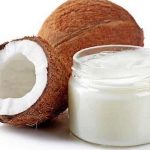Glyphosate Found Guilty Of Causing Cancer
Roundup’s main ingredient glyphosate is being found in literally everything from rainwater, streams, ice cream, cereal, breast milk, beer, to cord blood. How did this happen? A study published in October 2017 showed that human exposure to glyphosate has increased by approximately 500 percent since the introduction of GMO crops. The saturation of our environment in Roundup has spiked since the introduction of Roundup Ready GMO crops. Roundup Ready seeds are genetically modified to be resistant to the herbicide Roundup. But, it’s also conventional crops that are not genetically modified such as wheat, barley, oats, sunflowers, potatoes, and lentils produced using Roundup. Roundup is also widely used by consumers and communities on their lawns, home gardens, golf courses, parks, and schools.
Some disturbing connections are made when investigating the extreme usage of Roundup in juxtapose to our rising health and environmental issues. Roundup is extremely dangerous due to its main ingredient, glyphosate.
Glyphosate Is A Mineral Chelator
Glyphosate was first patented as a mineral chelator in 1964 by Stauffer Chemical Co. Later, in 1974, Monsanto introduced this chelator as an herbicide. According to Dr. Huber, an award-winning scientist and professor emeritus of plant pathology at Purdue University, “It’s important to realize that glyphosate is not ‘just’ an herbicide but also an antibiotic. As a mineral chelator, this poses a health risk for those that ingest glyphosate because it immobilizes nutrients, so they’re not physiologically available for your body. As a chelator in the soil glyphosate binds itself to vital nutrients such as iron, manganese, zinc, and boron, preventing plants from taking them up. As a chelator that is ingested, it poses potential health implications for humans and animals that eat GMOs, glyphosate-tolerant crops, or glyphosate-dried crops as it could affect nutrient value.
Glyphosate Is A Probable Carcinogen
Glyphosate was deemed by the World Health Organization to be a probable carcinogen. So the fact that we are finding this persistent chemical in food, water, air, and our bodies is quite disturbing and it’s likely we won’t know the sum of glyphosate’s impact for several years. Just this year California began to add warning labels to Roundup and has listed glyphosate as a carcinogen.
Some Additional Facts About Glyphosate
According to a February 2016 study in Environmental Sciences Europe, glyphosate is the most widely used pesticide. “ In the U.S., no pesticide has come remotely close to such intensive and widespread use.
Findings include:
- Americans have applied 1.8 million tons of glyphosate since its introduction in 1974.
- Worldwide 9.4 million tons of the chemical has been sprayed on fields – enough to spray nearly half a pound of Roundup on every cultivated acre of land in the world.
- Globally, glyphosate use has risen almost 15-fold since so-called “Roundup Ready,” genetically engineered glyphosate-tolerant crops were introduced in 1996.
- As Roundup producer Monsanto itself has reported, the residue from glyphosate tends to accumulate in the bones, marrow, and collagen-rich ligaments of animals. Anthony Samsel confirmed this finding in his own study of the bones, marrow, and other parts of pigs and cows, as well as the derived bovine gelatin.
Health Conditions Linked to Glyphosate Include
- ADHD: A 2015 study from an Ohio-based research team found an increase in the use of GBHs coincides with a surge in healthcare costs related to attention deficit hyperactivity disorder (ADHD).
- Brain and Gut Disorders: Manganese binds to glyphosate thus stripping the body of this important nutrient. Certain strains of essential gut bacteria need manganese to thrive. Damaged gut bacteria has been linked to anxiety disorders, as well as brain diseases like Alzheimer’s, Parkinson’s, and multiple sclerosis. Gut bacteria imbalances due to pesticide intake, have also been linked to escalating rates of obesity, per a study in the Journal of Alternative and Complementary Medicine.
- Auto-immune Diseases: Glyphosate is an endocrine disrupting chemical that can throw off your body’s delicate internal balance of hormones and immunity thus making your body susceptible to disease.
- Cancers and lymphoma: Research has tied glyphosate exposure to cancers of the thyroid, liver, bladder, pancreas, and kidneys. A recent paper in Environmental Research and Public Health, have linked herbicide exposure to higher rates of non-Hodgkin’s lymphoma.
Why Are We Using Glyphosate?
When asking this question to my favorite farmer, who is also my Dad, he said: “Nobody likes a weed in their garden. But, there are many natural ways to control weeds. Roundup was marketed as a shortcut for those aiming to cut labor costs.”
Glyphosate is a “non-selective herbicide,” which means it kills many plants, not just weeds. It kills them by interfering with the production of critical proteins necessary for growth. Glyphosate is the main ingredient in Roundup and was made popular by killing any pesky weed anywhere from your sidewalk to your field. This makes it an easy tool to use for gardeners and farmers.
Glyphosate is also used on over 70 crops as a desiccate prior to harvest. Basically, this means it helps speed up the harvesting process and the pre-harvest treatment of crops with glyphosate helps farmers to harvest their crops quickly and turn a profit faster. The crops that are sprayed just ahead of harvest includes popular foods like almonds, oranges, grapes, apples, watermelons, figs, and spinach. The issue with this usage is that the entire product is then saturated with glyphosate and then harvested without any attempt to wash off the product or rid it of this probable carcinogen.
Juries Unanimously Find Monsanto Guilty
On Aug. 10 a jury ruled that Monsanto’s weedkiller was a substantial contributing factor in causing DeWayne “Lee” Johnson’s cancer, and ordered Monsanto to pay $289.25 million in damages, including $250 million in punitive damages. The judge reduced the punitive damages to $39 million in an order dated Oct. 22, 2018, which put the total verdict at approximately $78 million. Monsanto declared it would appeal and Johnson has cross-appealed, seeking to reinstate the jury award.
The second glyphosate/cancer case is the first Federal case and is taking place in San Francisco. This case has been separated into two stages. The first phase found Monsanto guilty unanimously of causing the plaintiffs non-Hodgkins lymphoma. That same jury will now have to determine if Monsanto is liable and knew that their product could cause cancer. If they are found guilty again they will have to pay damages to California resident Edwin Hardeman.
Monsanto’s Corruption of Science and Ghost Writing Studies
“The Monsanto Papers” were documents obtained via Discovery (a pre-trial civil procedure allowing the parties to obtain evidence from each other) allow people to see what is happening “behind the curtain” of secrecy that normally shrouds ongoing litigation. You will find links to internal Monsanto emails, text messages, company reports, studies, and other memoranda. You can review all the dirty details here.
Stop Using Roundup Now!
Entire cities are now banning this toxin due to the findings of these juries and the proof that Monsanto lied to cover up the toxicity. Miami just announced that the entire city was banning glyphosate to save the Biscayne Bay. This is great news since we know that it’s possible for cities across the U.S. to follow suit.
We’ve been successful at getting it removed from certain schools and counties but we need to do even more to rid our environment of this toxin.
If you’re using Roundup in your garden, please stop! And please share this post with your friends and family.
Choose Certified Organic
Thankfully organic farmers are not allowed to use glyphosate in food production. There have been instances where glyphosate can contaminate processed foods made with organic oats but the levels are very small. Certain companies are taking an extra step to become certified glyphosate-free to avoid the contamination concern.
Talk To Your Farmers
As a customer, you have an enormous power that you might not be using. Talk to your farmer and your farmer’s market. They might be using glyphosate if they are not certified organic. Share your concerns with them and help them keep your business. You are voting for a healthy food future when you use your food dollars to purchase glyphosate-free certified organic products.





